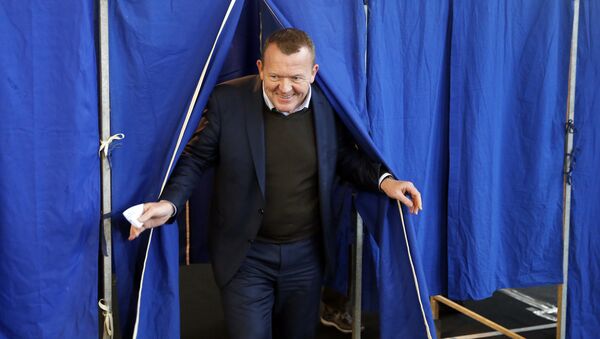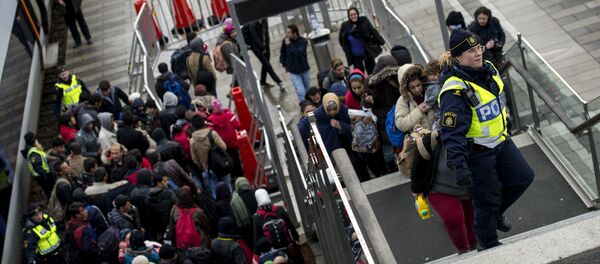In the seventh referendum on EU membership, Danes have rejected further integration with Brussels, preferring to keep powers in Copenhagen, in what will be seen as a win for Euroskeptics across the continent, including the UK, which is due to hold a referendum on its membership of the EU by the end of 2017.
More EU means less democracy. Few countries are as democratic as Denmark. Why risk it? #StemNej #DKpol #EUref pic.twitter.com/P8Z1xedurG
— Daniel Hannan (@DanHannanMEP) November 28, 2015
Denmark negotiated an opt-out from EU policy on cross-border policing in 1993 and the referendum outcome means that the country remains outside of many of the justice and home affairs policies, in a snub to its own government which wanted to abandon the opt-outs.
"The Danish 'No' to Europe is a massive boost for the Brexit campaign in Britain, as well as Marine Le Pen and other political forces who want to see Europe revert to closed nation-states based on economic protectionism and nation-first rejection of cooperating with other EU member states and, sadly at times, open xenophobia," Denis MacShane, Britain's former Europe minister told Reuters.
The Danish vote against further integration with Brussels on home affairs and justice comes at a time of heightened security in Europe, following the terror attacks in France, including the Charlie Hebdo attacks in January and the Paris attacks on November 13.
— Nicolai von Ondarza (@NvOndarza) December 3, 2015
#UKIP may have lost Oldham by-election. But here in #Denmark it's the #Eurosceptics celebrating after Danes vote NO in #referendum on EU.
— Alex Forrest (@_alexforrest) December 4, 2015
Europol Exit?
The 'No' vote is also believed to have been strengthened by the European refugee crisis, which has seen a huge influx of asylum seekers from war-torn countries such as Syria, Iraq, Afghanistan, Libya and Somalia. Denmark closed its borders in September to stop the rising tide of refugees entering the country.
Danish Prime Minister Lars Lokke Rasmussen, who led the 'Yes' campaign said:
"I don't consider this as a step back. The Danes have refused to take a step forward. The reasons why Danes refused to chose what we proposed is probably that there's this feeling of uncertainty given the fact that Europe is right now faced with other major problems which we haven't really solved."
Government officials in Copenhagen are urgently examining the country's membership of Europol in the light of the referendum result.
Ahead of the meeting, he told reporters: "I'm going to tell them about the outcome of the Danish referendum, that we cannot participate in the Europol provision. That puts us in a difficult situation but we'll just have to work with it and see how we can solve this.
"The government has a very strong interest in Denmark continuing in Europol, and we must attempt to do that," he said.



